Shark
Webinars
The National Marine Sanctuaries Webinar Series provides educators, students, and the interested public with educational and scientific expertise, resources, and training to support ocean and climate literacy. Take a look at the shark-curated webinars ranging from discussing population changes of sharks to specific species and even sharks in movies.
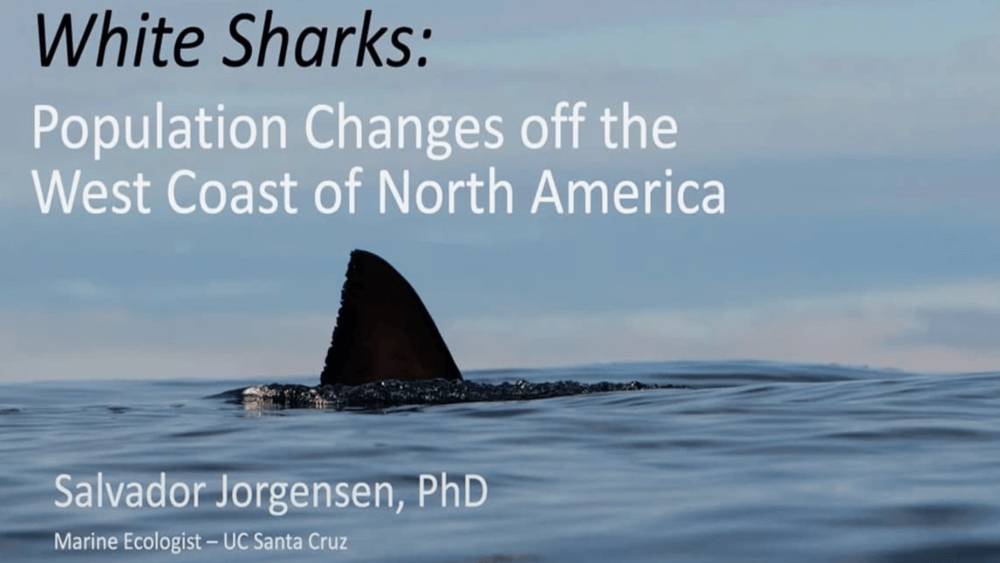
Tracking White Sharks! An Update on Population Changes off the West Coast of North America
This presentation will detail the latest developments in a long-term study of the northeast Pacific great white sharks. A combination of management practices and climate change have led to range shifting and population fluxes among juvenile and adult white sharks. These changes, along with surprising interactions with other predators, underscore the dynamic nature of this cryptic top predator and its important role in coastal and ocean ecology.
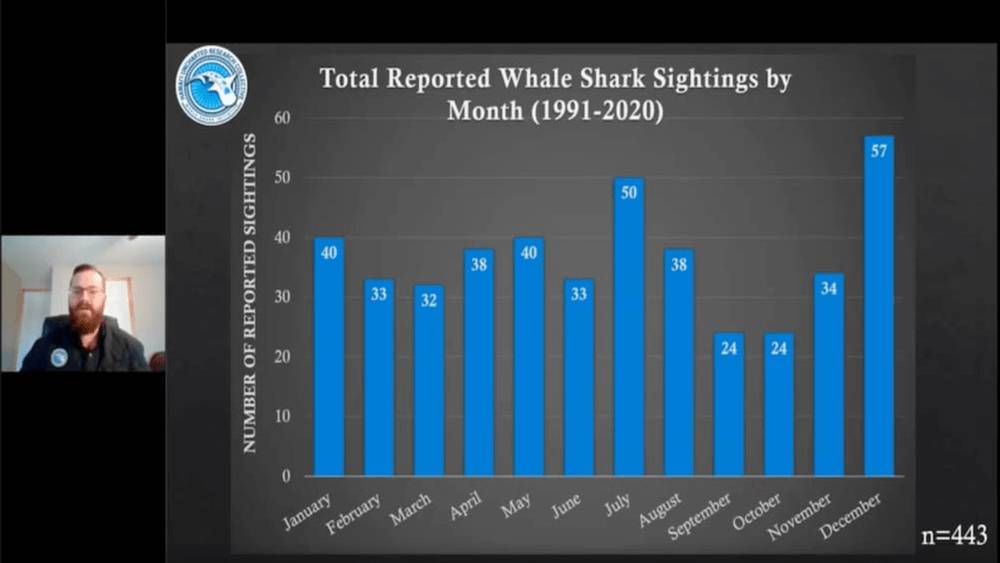
Whale Sharks of Hawai’i
Whale sharks (Rhincodon typus) are known to be the largest fish in the world with some individuals measuring 20 meters (60 feet) long and weighing around 40 tons. Despite their tremendous size, they are gentle giants, using their nearly 1.5 m-wide (5-foot) mouths to filter plankton out of large volumes of water as they swim. Very little is known about whale sharks in Hawai‘i. The researchers at Hawai‘i Uncharted Research Collective started this non-profit organization for this very reason.
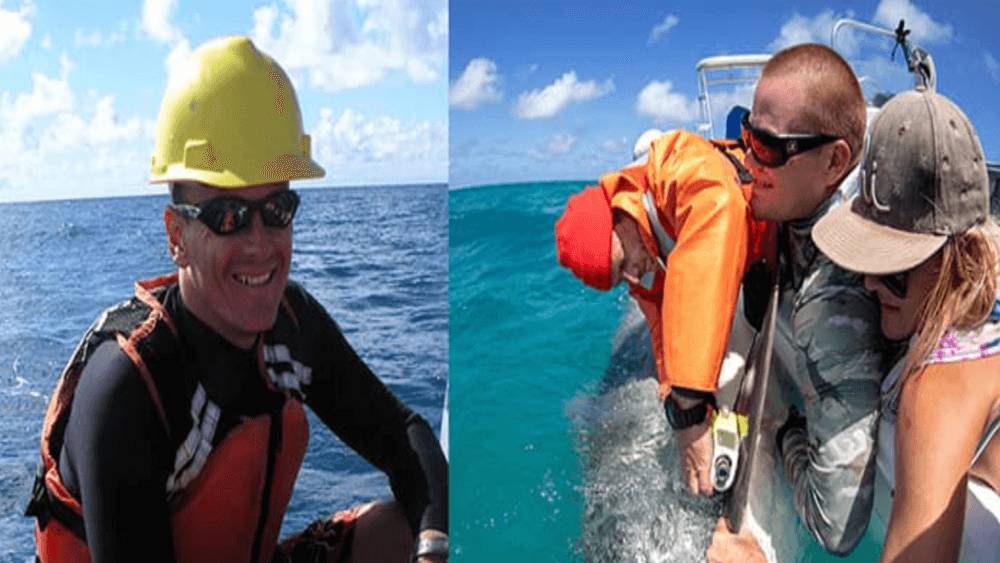
Revealing the Secret Lives of Sharks
The ocean conceals the daily lives of its inhabitants from our view. For us to learn about the natural behaviors of elusive marine animals like sharks, we need a way to remotely unveil what is happening beneath the surface and beyond our sight. Recent decades have seen the development of increasingly sophisticated, animal-borne electronic devices that are providing surprising new insights into shark biology and guiding management and conservation strategies.
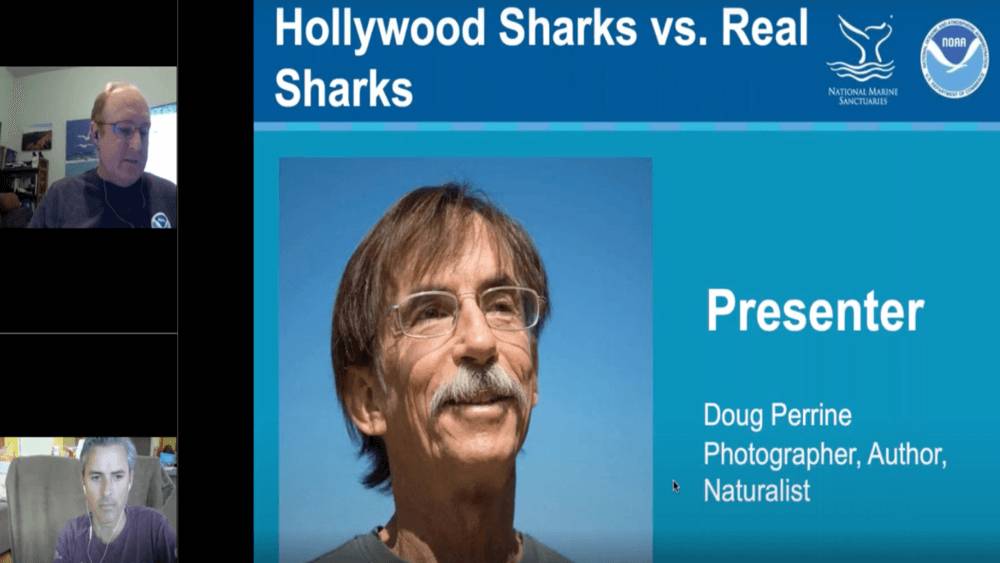
Hollywood Sharks vs. Real Sharks
Over a lifetime, Doug Perrine has traveled the planet studying and photographing the marine environment with a particular passion for some of the oceanʻs largest and least understood animals -- sharks. In this presentation, Doug deconstructed the media bias concerning this large and diverse class of fishes, and shows how sharks portrayed in Hollywood and in the media are very different from the real behavior of these fascinating, ancient, and ecologically important animals. Through vibrant imagery, as well as intimate observations of these sometimes secretive animals, Doug shed light on their real behavior and life history.
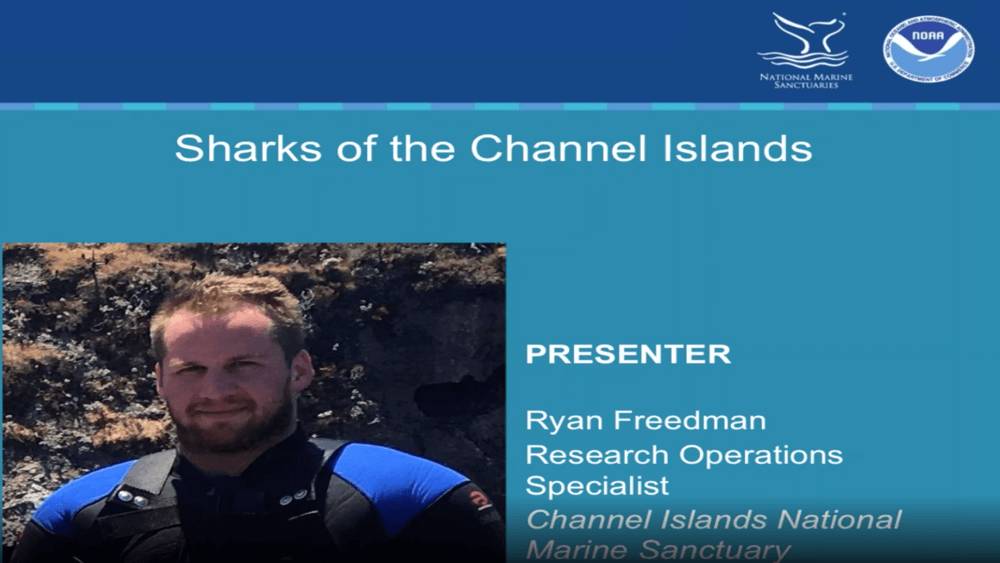
Sharks of the Channel Islands
This webinar covers sharks that inhabit Channel Islands National Marine Sanctuary and is presented by Dr. Ryan Freedman, who is the Research Ecologist at the sanctuary site. Learn a general overview of sharks, the threat of gillnets to shark populations, how sharks are tracked for research and conservation, and much more through this recorded webinar.
Tracking The Honda’s Hammers
Join Dr. Grace Casselberry to learn how she used acoustic telemetry to explore the secret lives of The Honda’s Hammers.

